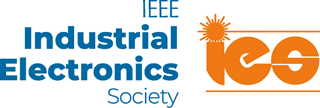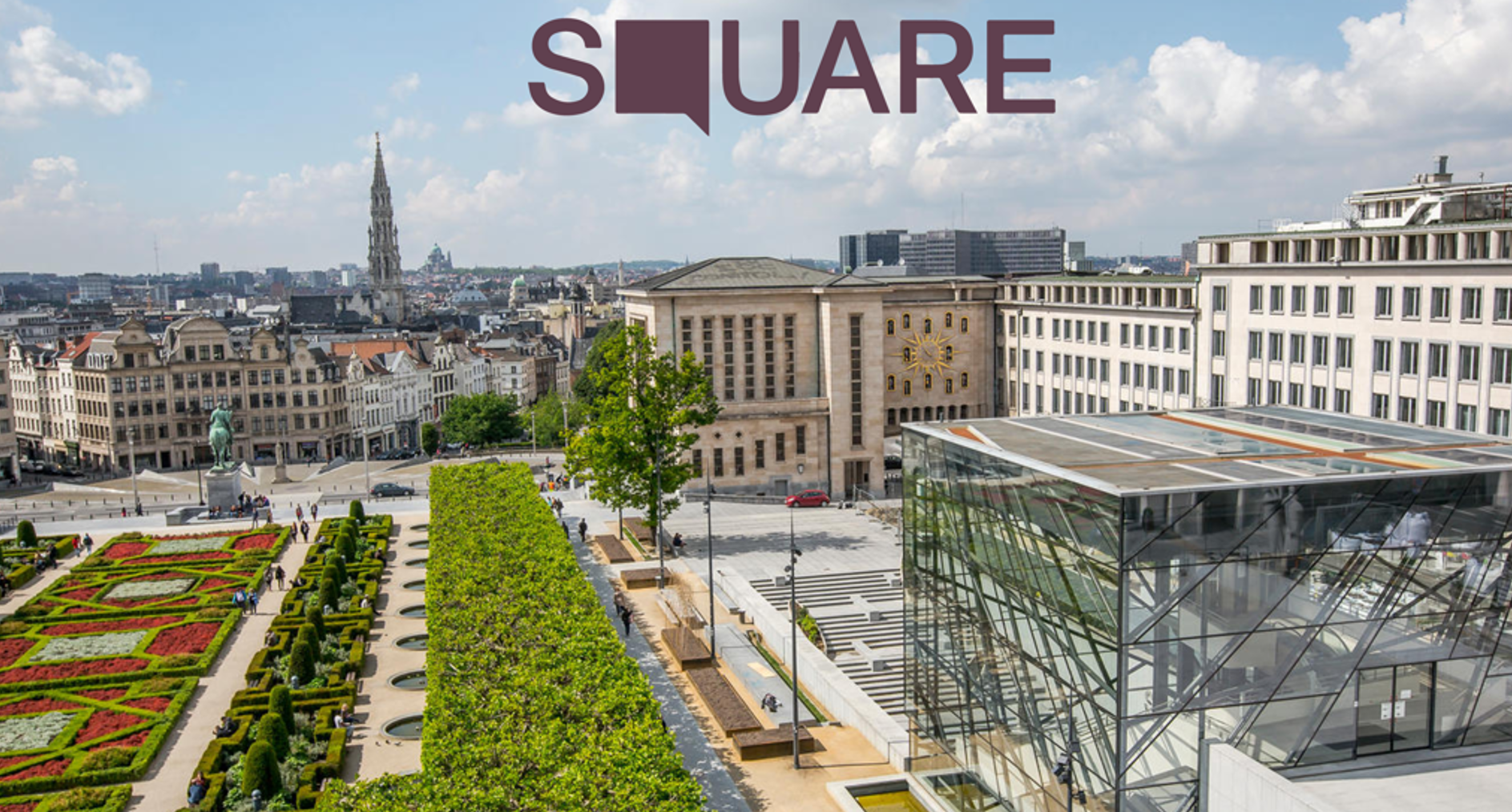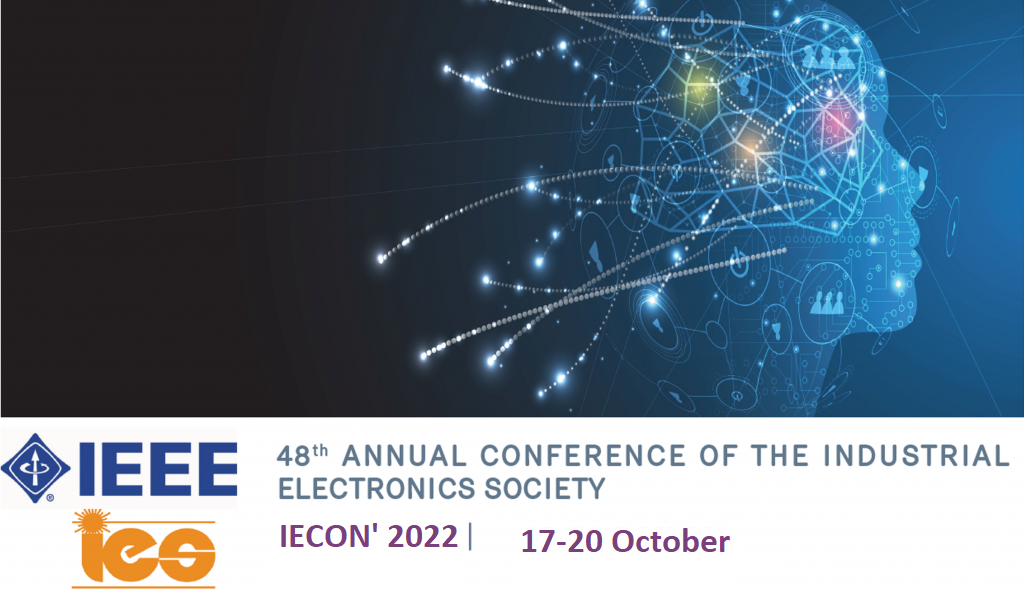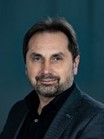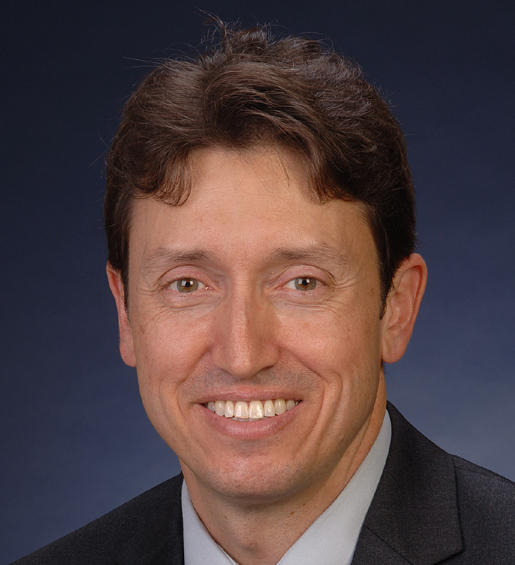48th Annual Conference of the Industrial Electronics Society
IECON 2022 Conference
WORKSHOP ON INDUSTRIAL WIRELESS TECHNOLOGIES AND SYSTEMS
The Workshop: October 17, 2022
Workshop Chair :
Zhibo Pang (ABB, Sweden)
Rick Candell (NIST, USA)
Kang Lee (NIST, USA)
Kim Fung Tsang (CityU, HK)
Sponsored by :
IEEE Industrial Electronics Society (IES) Standards Committee
Technical Co-sponsors:
National Institute of Standards and
Technology (NIST)
Instrumentation & Measurement Society Technical Committee on Sensor Technology (TC-9)
IES Technical Committee on Cloud & Wireless Systems for Industrial Applications
IES Technical Committee on Industrial Cyber-Physical Systems
IES Technical Committee on Industrial Informatics
IES Technical Committee on Building Automation, Control & Management
Purpose
The purpose of this workshop is to provide an opportunity for representatives from industry, academia, and government to work closely together to update to this research community on the latest progresses, emerging use cases, future roadmaps, open challenges, and promising research directions. The output of this workshop will, on one hand, help technology vendors to develop better wireless technologies that meet the industrial specific needs, and on the other hand, it will help system integrators and users to determine which wireless technology is suitable for which use cases with which level of performances, and how to deploy, integrate, and engineer the wireless systems properly in challenging industrial environments with e.g., many potential physical obstructions and sources of interferences.
Registration :
• Workshop Only (1 day registration): €200.00
• Full IECON Conference (includes Workshop): Full Conference Fee
Potential topics Include
- Wireless technologies e.g., 5G/6G, WiFi6/7, Wireless TSN, satellite, LPWAN (LoRa, Sigfox,
NB-IoT), UWB, etc. for Industrial IoT
Emerging techniques to achieve high-reliability, low-latency, secure, and safe wireless systems
- Wireless use cases and requirements for industrial applications such as robotics, mobile
platforms, process automation, UAV, motion control, healthcare, smart buildings, product
safety, etc.
- Security, blockchain technologies and networks for industrial IoT applications
- Source of interference and coexistence of wireless technologies
- Approaches for spectrum monitoring and interference management in Industrial IoT
- Wireless-aware Industrial IoT applications such as industrial AI, monitoring and maintenance,
closed-loop control, functional safety
- Systems engineering approach and processes for applying wireless technologies
- Convergence of wireless and wired protocols and networks in Industrial IoT
- Convergence of wireless communication with edge computing in Industrial IoT
- Convergence of wireless communication with artificial intelligence in Industrial IoT
- Needs for standardization of protocols, practices and guidelines
Background
Manufacturers applying wireless technologies in new or existing automation systems for sensing,
monitoring, and controlling equipment and processes can reap benefits by eliminating costly cabling and
enabling mobility and deployment flexibility. Meanwhile, using wireless technologies can improve
factory-floor operating conditions, performances, and efficiency. It is envisioned that the industrial
wireless infrastructure will become a common infrastructure for communication, computing, and even
sensing. The industrial use cases are also among the drivers of the evolution of cellular, Wi-Fi, and even
satellite networks. In the recent years, technology vendors are achieving significant progresses while the
expectations from system integrators and users are increasing even more rapidly, which means many
challenges are being solved while many new ones are being brought up.
Who Should Attend/Stakeholders
Industrial wireless technology developers, system integrators, device manufacturers, end-users, standardization initiatives, and researchers are invited to speak and participate in this workshop/panel discussion for establishing guideline and research direction.
Benefits
The results of the workshop will help develop guideline, standard, and future research direction, which will help manufacturers, users, and their technology suppliers to design, assess, select, and deploy wireless platforms that perform dependably in their industrial settings and conditions.
October 17, 2022 - Workshop Agenda
8:30 am - 11:00 am Registration
10:30 am - 10:50 am Coffee Break
12noon – 1pm Lunch
3:00pm-3:20pm Coffee Break
Fees
• Workshop-ONLY: €200.00. All registered for the workshop only will be provided
with coffee breaks, lunch, and WiFi access.
• Full Conference (Workshop included): Full Conference Fee.
*Full Speaker abstracts and biographies starting page 5.
Organizers/Chairs
Zhibo Pang, pang.zhibo@se.abb.com / zhibo@kth.se;
Rick Candell, rick.candell@nist.gov ;
Kang Lee, kang.lee@ieee.org;
Kim Fung Tsang, ee330015@cityu.edu.hk ;
Steering Committee
Allen Chen, c.j.chen@ieee.org ;
Zhibo Pang, pang.zhibo@se.abb.com / zhibo@kth.se;
Kim Fung Tsang, ee330015@cityu.edu.hk ;
Victor Huang, v.huang@ieee.org ;
Chairs of the Sponsoring IES TCs
Main Sponsor:
Allen Chen, Chair, TC Standards
Technical Co-sponsors:
Len Shu, Chair, TC Cloud & Wireless Systems for Industrial Applications
Yang Shi, Chair, TC Industrial Cyber-Physical Systems
Wenbin Dai, Chair, TC Industrial Informatics
Kim Fung Tsang, Chair, TC Building Automation, Control, and Management
List of talks, Abstracts, Biographies and photos of the Speakers
KEYNOTE: “Safety and Security in Industrial Automation: The Need for a Holistic View”
– Prof. Thilo Sauter, TU Wien and University of Continuing Education Krems, Austria
KEYNOTE: “TBD” – Dr. Chih-Lin I, Chief Scientist, China Mobile Research Institute
“Deterministic Industrial Networks and Communications Enabling Edge Control ” – Dr. David Zhe Lou, Huawei Technologies
“Latest progress in WiFi6 and WiFi7 towards Wireless Time Sensitive Networking” – Dr. Suresh Kalyanasundaram, Intel Research, Germany
“On a journey towards a flexible WiFi TSN Chip” – Dr. Ingrid Moerman, IMEC and UGhent, Belgium
“Latency Measurement and Analysis of wireless networks in time sensitive applications” – Dr. Zhibo Pang, ABB Corporate Research Sweden/ Royal Institute of Technology (KTH)
“What If We Design a Next G” – Dr. Hans-Peter Bernhard, Silicon Austria Labs
“Time-Sensitive Networking in Industrial Wireless Applications” – Dr. Richard Candell, NIST
Primary Sponsor
